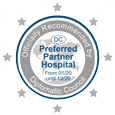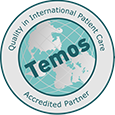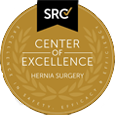Oncologic Clinical Trials and Research Clinic covers all standard and novel, approved, groundbreaking, targeted, and personalized treatments in the field of Oncology. Through partnerships with the Departments at Metropolitan General, other Group Hospitals, Academic Institutions/Departments, and Oncology Centers, our Clinic offers modern, robust, and diverse approaches for the investigation, diagnosis, management, and treatment of oncology patients.
Oncologic Clinical Trilas and Research Clinic was developed to address the needs of oncology patients and their family environment, based on an axis of 4 pillars.
- Provision of disease-specific, patient-applicable, scientifically established, and worldwide acknowledged diagnostic and treatment modalities.
- Opportunity to take part in highly regarded international Oncology Clinical Trials
- Early access to treatments with demonstrated effectiveness that are not currently marketed in our country, through no-cost early access programs.
- Participation in research studies, such as the development/identification of biomarkers for suitable and efficient treatment selection
Oncologic Clinical Trials and Research Clinic participates in a considerable number of clinical trials in patients with metastatic prostate cancer, metastatic colon/rectal cancer, metastatic kidney cancer, bladder cancer/urothelial cancer, small cell lung cancer, and other tumor diseases.
The Clinical Trials team consists of the following members:
Principal Investigator:
Evangelos Bournakis, Medical Oncologist
Director of Oncologic Clinical Trials and Research Clinic
Sub-investigators:
Nikolaos Soupos, Medical Oncologist
Nikolaos Skandalakis, Cardiologist
Study Coordinator:
Athanasios Bournakis MSc, Chemical Engineer
Study Nurses:
Stamatia Kotsia, Head of One Day Clinic at Metropolitan General
A clinical trial is a procedure to confirm a drug’s already established safety and efficacy. A study drug is compared either to a placebo (pharmacologically inactive substance), when there is no standard treatment, or to current standard treatments to determine whether it is more effective and help approve its market release and administration in daily clinical practice.
In settings where there is already a standard treatment with a proven survival benefit, a study drug is compared combined with the standard treatment versus standard treatment alone, to determine whether adding this new drug to the standard treatment would result to a greater survival benefit or disease response compared to that standard treatment alone.
HOW CAN A PATIENT BENEFIT FROM TAKING PART IN A CLINICAL TRIAL?
Being involved in clinical research offers multiple benefits, including receiving a high standard of therapeutic approach and monitoring according to a strict, internationally established framework that governs the clinical protocol of each study.
Through participation in clinical trials, the following are achieved:
- Access to modern treatments that combine an internationally approved treatment with the addition of a new study intervention at no cost to the patient or their payer.
All study patients have free of charge access to our Hospital’s services to undergo study-related tests and procedures (blood testing, imaging Trials, biopsies, One Day Clinic for the administration of the study drug, inpatient stay, medical and tumor follow-up by the study physicians).
Depending on the requirements of the clinical research, patients often have the possibility to undergo modern imaging, laboratory, or genetic testing at no cost; such tests are particularly expensive and, occasionally, not covered by payers.
Additionally, patient transportation costs to and from the Hospital and their accommodation are usually covered in many international clinical trials. This makes it easier for patients from all around Greece to access high-level treatment options during these challenging economic times.
- The opportunity to access advanced and promising treatments earlier than they are marketed worldwide, provided that research demonstrates such treatments to have a therapeutic benefit in cure or overall survival improvement. This is a particularly important fact, especially for people with incurable, usually metastatic, malignancies.
- The opportunity to receive treatments when standard treatment options are limited or exhausted.
- The opportunity for uninsured people to receive the best standard treatment combined with the study intervention, in a prestigious hospital setting, at no cost.
NOTE: Participation in a clinical study is ONLY offered if this is actually the best possible disease-specific treatment option and ONLY after the prospective participant has received full and detailed information on the study. Participation in a clinical study IS VOLUNTARY. Participation in a clinical study is not binding, even if a participant has initially agreed and signed the Patient Consent Form. Participants may withdraw from the study at their discretion and/or the study physician’s discretion.
In international clinical trials, protocol-related supply of drugs and paraclinical tests are free of charge both for patients and their payer.
Early access programs refer to new drug therapies that have demonstrated their efficacy in treating target malignancies, have been approved by the US FDA (United States Food and Drug Administration) and/or by the EMA (European Medicines Agency), however, they are not currently on the Greek market, typically for pricing reasons.
Through such programs, one can have access to these interventions, much earlier than these are priced and prescribed. Thus, study drugs can offer their benefit sooner to people who need them at no cost (in some programs, even payers are not financially burdened, as the drug is provided free of charge by the pharmaceutical company that manufactures it - in this case, a program enrolls only a limited number of patients)
Early access programs are not clinical trials.
There is currently no open early access program in our Clinic.
- Early access program in non-metastatic castration-resistant prostate cancer. Free of charge delivery of/access to apalutamide in non-metastatic castration-resistant prostate cancer
(closed program; drug already covered by EOPYY [Greek National Organization for the Provision of Health Services]) - Early access program in extensive stage small cell lung cancer, first-line treatment. Free of charge delivery of/access to standard etoposide-platinum chemotherapy
(closed program; drug already covered by EOPYY [Greek National Organization for the Provision of Health Services])
- Prognostic and predictive value of tumor molecular alterations in patients with prostate cancer TR_9/2
closed program
HOW CAN I FIND OUT IF I AM ELIGIBLE FOR A CLINICAL TRIAL, EARLY ACCESS PROGRAM, OR RESEARCH PROGRAM?
You can search on the websites of Metropolitan General Hospital and Oncologic Clinical trilas and Research Clinic for Clinical Trials, Early Access Programs, and Research Programs that are currently open or anticipated to open. Then, you can get in touch with the Clinic's Oncologists to schedule an appointment and find out whether you might be able to participate in one of them, depending on the nature of your medical condition.*
If you are already under medical care, your attending physician can also inform you about the value of clinical trials and discuss your participation in one of them with you or refer you to someone from ourOncologic Clinical Trials and Research Clinic Team.
*For everyone's safety during these hard times and to prevent the spread of COVID-19, you can also send any inquiries or questions you may have about our Clinic’s ongoing Clinical Trials, Early Access Programs, or Research Programs to the e-mail below: OncoCTR.Clinic@yahoo.com
GASTROINTESTINAL CANCER – STOMACH/DUODENAL, PANCREAS/BILE DUCTS, COLORECTUM (GI CANCERS)
- KRYSTAL-10 study, Protocol 849-010
A phase 3, randomized study of MTRX849 in combination with cetuximab versus chemotherapy in patients with advanced colorectal cancer with a G12C mutation in the KRAS gene with disease progression during or after standard first-line treatment – open study, open patient enrollment
- CA209-8HW study
A phase 3b, randomized study of nivolumab monotherapy versus nivolumab plus ipilimumab, or investigator's choice chemotherapy, in patients with metastatic colorectal cancer and microsatellite instability (MSI-H) or mismatch repair deficient (dMMR) (for patients either in first-line treatment or in any line of treatment-treatment experienced) – open study, closed patient enrollment
- ISO-CC-007 study (AGENT STUDY)
A phase 3, randomized, multicenter, parallel-group study comparing the efficacy of arfolitixorin versus leucovorin combined with 5-fluorouracil, oxaliplatin, and bevacizumab in patients with advanced colorectal cancer (first-line treatment) – study is completed
GENITOURINARY CANCER – PROSTATE, KIDNEY, UROTHELIUM (GU CANCERS)
- CAPItello 280 study (prostate cancer)
A phase 3, double-blind, randomized, placebo-controlled study evaluating the efficacy and safety of capivasertib + docetaxel versus placebo + docetaxel as treatment in patients with metastatic castration-resistant prostate cancer (mCRPC) – open study, open patient enrollment
- CONTACT-02_XL184-315 study (prostate cancer)
A phase 3, randomized study of cabozantinib combined with atezolizumab versus the second newer hormonal agent (enzalutamide or abiraterone) in patients with high-risk, metastatic castration-resistant prostate cancer – open study, closed patient enrollment
- CA017-078 study (bladder/urothelial cancer)
A phase 3, randomized study of induction chemotherapy alone versus induction chemotherapy plus nivolumab or nivolumab and BMS-986205, followed by continued postoperative treatment with nivolumab or nivolumab and BMS-986205 in patients with muscle invasive bladder cancer – closed for patient enrollment
- CPZ034AGR06 - ATLAS non-interventional study (kidney cancer)
A phase 4, prospective, observational study in patients with advanced renal cell carcinoma to evaluate the efficacy and duration of responses to pazopanib as first-line treatment – closed study
- CO39303 study (prostate cancer)
A phase 3, randomized, double-blind, placebo-controlled, multicenter study of ipatasertib plus abiraterone plus prednisone/prednisolone versus placebo plus abiraterone plus prednisone/prednisolone in previously untreated patients with asymptomatic or mildly symptomatic metastatic castration-resistant prostate cancer (November 2017- ) – closed for patient enrollment
- Phase 3 PRESIDE study (prostate cancer)
A study to evaluate the benefit of enzalutamide treatment after disease progression in men initiated on docetaxel treatment after progression of their metastatic castration-resistant prostate cancer while on enzalutamide alone (September 2015- ) – study completed
- CO39385 study (prostate cancer)
A phase 3, multicenter, randomized, placebo-controlled, double-blind study of atezolizumab combined with enzalutamide versus enzalutamide alone in patients with metastatic castration-resistant prostate cancer after treatment failure with androgen biosynthesis inhibitor and treatment failure or failure to adhere or treatment refusal of the taxane-based chemotherapeutic regimen (October 2017- ) – closed for patient enrollment
- GO41767 - SKYSCRAPER Study (small cell lung cancer)
A phase 3, randomized, double-blind, placebo-controlled study to compare treatment with atezolizumab and carboplatin and etoposide with or without tiragolumab (anti-TIGIT antibody) in previously untreated patients with extensive stage small cell lung cancer (September 2020- ) – closed for patient enrollment
GYNECOLOGICAL CANCER – OVARIES, UTERUS/ENDOMETRIUM, CERVIX (GY CANCERS)
Staff
Principal Investigator
Evangelos Bournakis, Medical Oncologist, Director/Head of Oncologic Clinical Trials and Research Clinic
Sub-Investigators
Nikolaos Soupos, Medical-Oncologist
Nikolaos Skandalakis, Cardiologist
Study Coordinator
Athanasios Bournakis MSc, Chemical Engineer
Study Nurse
Stamatia Kotsia, Director of the One-Day Clinic at Metropolitan General





































